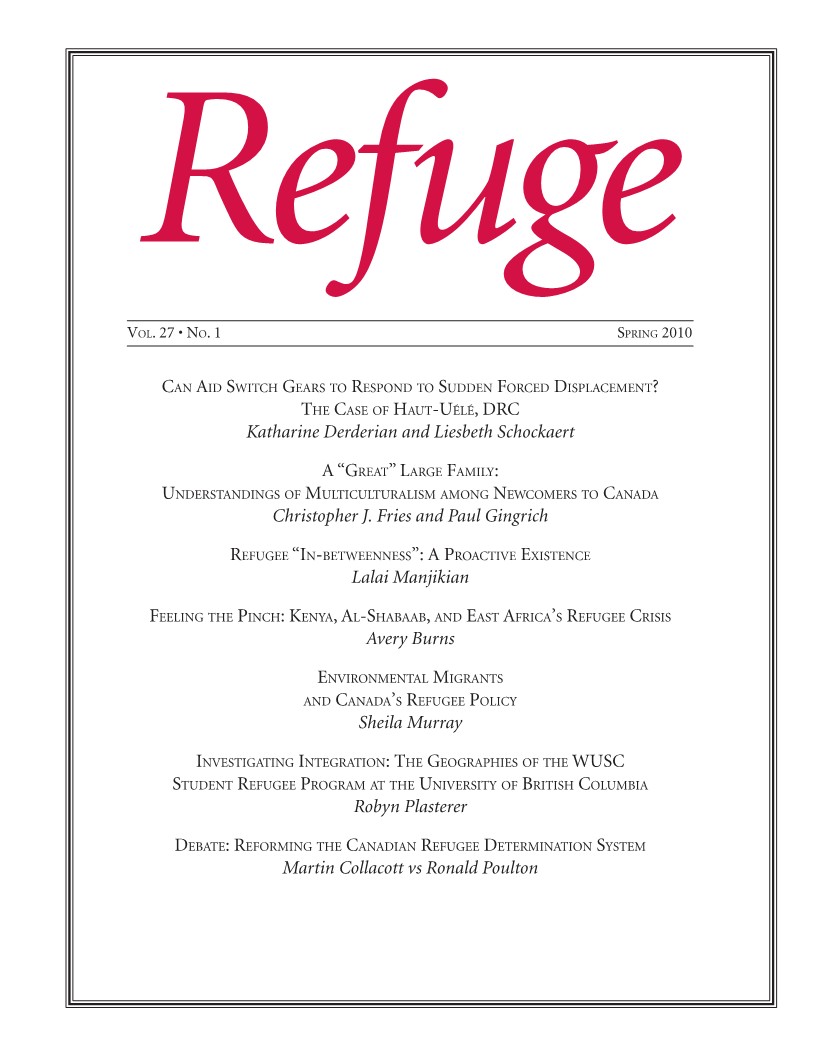Reforming the Canadian Refugee Determination System
DOI:
https://doi.org/10.25071/1920-7336.34358Keywords:
Canada, 1951 Refugee Convention, refugee policy, resettlement, asylum, refugee determination, safe third country, human trafficking, public opinionAbstract
If Canadian refugee policy is to serve interests of Canadians as well as those of genuine refugees in an effective manner, far more radical changes will be needed than have been attempted to date. They must include the introduction of robust safe third country designations, a review of the 1985 Singh decision of the Supreme Court of Canada, and possible withdrawal by Canada of its accession to the 1951 UN Refugee Convention. Other measures should also be considered such as placing an annual limit on the intake of refugees from overseas combined with that of successful in-country asylum seekers as well as establishing provision for temporary refugee status in Canada in addition to permanent resettlement. Measures should be taken to return Canada to its role primarily as a resettlement country for refugees selected abroad and not one that accommodates large numbers of asylum seekers making claims on our territory. With strong public backing for major changes, political parties that oppose such reforms will do so at the risk of losing electoral support.
Metrics
Downloads
Published
How to Cite
Issue
Section
License
Copyright (c) 2011 Martin Collacott

This work is licensed under a Creative Commons Attribution-NonCommercial 4.0 International License.
Refuge authors retain the copyright over their work, and license it to the general public under the Creative Commons Attribution-Non Commercial License International (CC BY-NC 4.0). This license allows for non-commercial use, reproduction and adaption of the material in any medium or format, with proper attribution. For general information on Creative Commons licences, visit the Creative Commons site. For the CC BY-NC 4.0 license, review the human readable summary.







